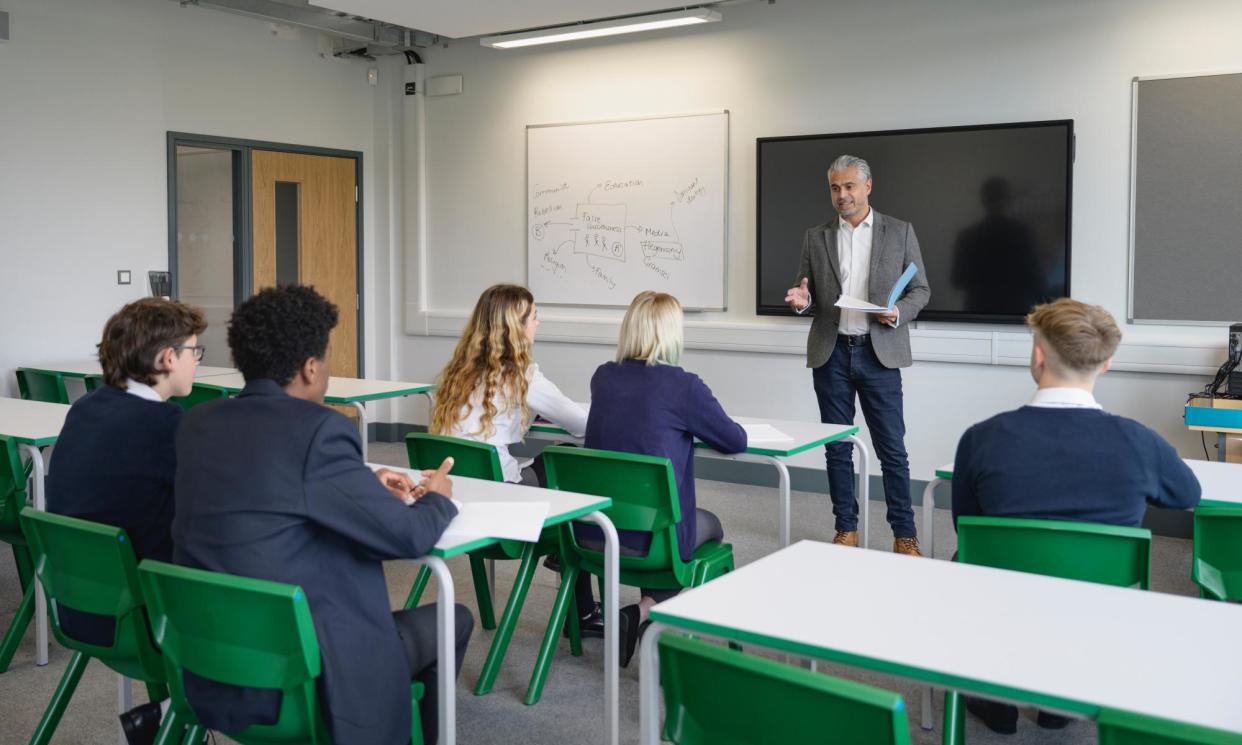Schoolchildren need to talk about the war in Gaza

Dame Sara Khan is right (Schools in England accused of closing down debate on Israel-Gaza conflict, 30 March). Teachers are reluctant to engage in discussions about the Israel-Gaza conflict with their students, but young people do need opportunities to deliberate and discuss such issues. This is not to debate them in a formal sense, with the implication that the majority view should prevail. Deliberative discussions allow participants to listen and respond to each other’s views, and to recognise the inevitable tensions and difficulties in balancing opposing opinions.
Teachers taking on the role of a moderator can encourage students to listen to each other’s views – rather than to the teacher – using open-ended questions (how and why, rather than who, what, when), and declining to advance their own views, offering only brief factual information when asked.
I’ve had the privilege of talking about current issues and events with very many small groups of students all over continental Europe, and found no reluctance among them to discuss similar events, advance their own views, and often modify them as they listen to each other. I found widespread complaints and frustrations that their teachers were very often reluctant to engage with them on such issues – and the rare examples of teachers who did this were enthusiastically praised for doing so. Asked, at times, for my own views, I’d say that of course I had views, and we might discuss those after they had discussed their standpoints. Teachers do not need to pretend they have no political views, but must of course avoid any suggestion that they might be indoctrinating.
There does need to be much more guidance and support for teachers to do this, on the full range of social values. There also needs to be an understanding that values are contingent, and change as our social understandings develop: our freedoms and equalities are often difficult to reconcile.
Alistair Ross
Jean Monnet professor of citizenship education, London Metropolitan University
• The challenges that many teachers face in dealing with Gaza in their classrooms demonstrates the downgrading of history in the school curriculum. History is always open for interpretation, but it can provide a fact basis for informed debate. Thousands of years lie behind the Gaza conflict. The diaspora, the emergence of Islam, pogroms, the Crusades, the promises made by Britain to the Arabs in the first world war, the Balfour declaration, the western division of the Middle East to protect oil, the Holocaust, the British protectorate of Palestine and its overthrow to create the state of Israel. These and countless other historical facts made the Gaza tragedy inevitable. Learn them and you may begin to understand.
Frank Edwards
Croydon, London


